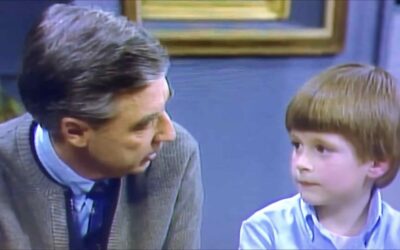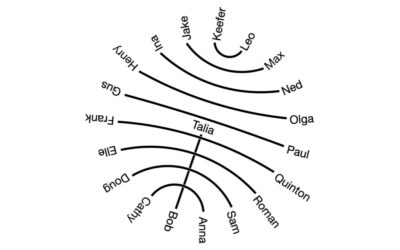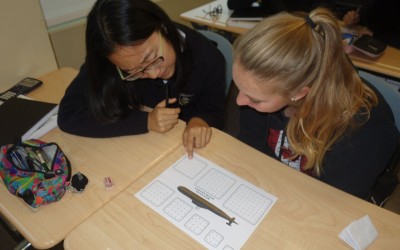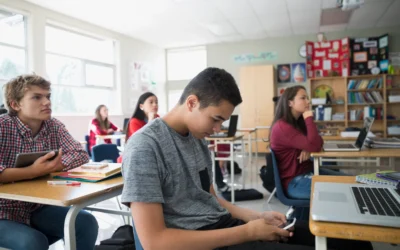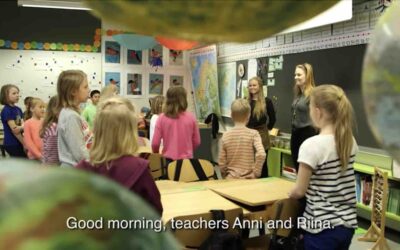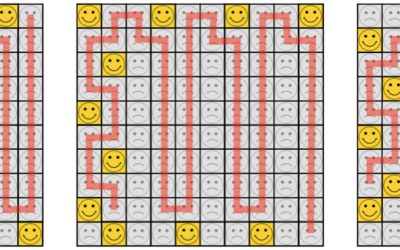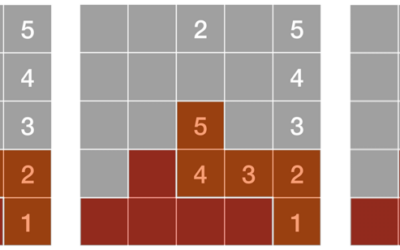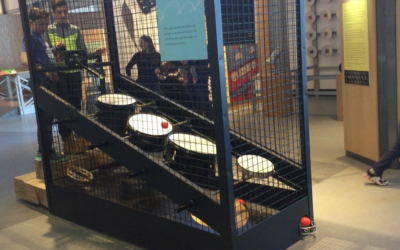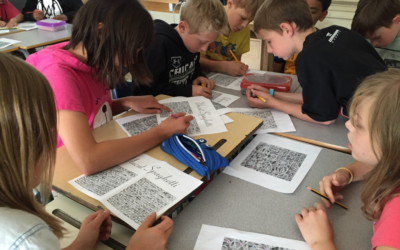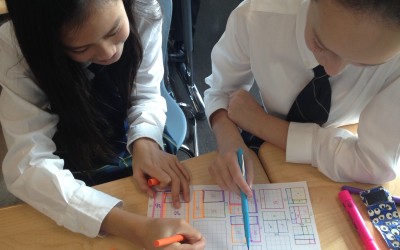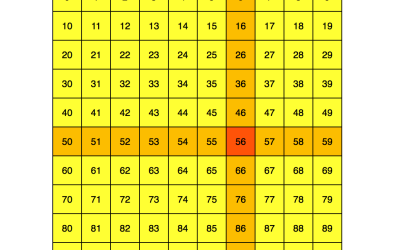Muse of Mathematics
the art and science of teaching mathematics blog
Where to look, Mr. Rogers?
I was thrilled to look at this wonderful video of Mr. Rogers with a young pianist. What was most striking is where Mr. Rogers looks when the child is playing. Most people would spend the majority of their time looking at the child's fingers as they dextrously span the...
Play is not the reward – it is the curriculum.
Friedrich Fröbel (1782-1852) had the idea of a Children's Garden where little people wouldn't be forced to learn, but would grow by playfully exploring a set of manipulatives called Fröbel gifts of wooden blocks and activities like weaving, paper folding, modelling...
How to pair up students?
My typical lesson involves students gathered in front of the class for the first 15 minutes as I focus on engagement and rules. Then, it is time for students to pair up—but how do I do that? Here is one aesthetic way that is worth experimenting with...
A Message to Mathematicians
The students above are tackling Costas arrays. The details surrounding Costas Arrays are not important. What is important is that finding a Costas array of a certain size is difficult, but that once an attempt at a solution is shown to you, it is pretty easy for you...
Hand Raising Meme
I subscribe to a newsletter from a university I enormously respect. This morning I opened it to find this image of hands raised. This meme of education has existed for long enough. Looking at the students above, you've got to say: 1) This looks staged. 2) The students...
No Phones in School
I recommend sharing the superb video below to galvanize school communities into stopping cell phones and getting children into a healthier space.
Two peas in a pod
One of the greatest US university teachers is Robert Lee Moore (1882-1974) from the University of Texas. A quote of his reminded me of a quote from Joshua Zucker, the first director of the Julia Robinson Mathematics Festival. They are fun to compare.That student is...
Finland’s Teacher Training
Finland has one of the best cultures of education. There is much to learn by seeing how they prepare their pre-service teachers.
Whirlpool Pedagogy for Grade 1
Here are several pedagogic ideas that I use when working with young students Kindergarten to grade 2. I find these the most exhausting classrooms, so I admire teachers who spend their working life here! I could not do what you do. Experiment... If it works for you,...
Four live Zoom puzzles with children
Teaching remotely is difficult. These four Zoom classrooms could be part of a discussion on how to teach remotely. The children here are not average. Most are gifted. At least one is a genius. The span of ability is roughly the same as an average class. The first...
How to pair up students? What about trios?
Fill the Gaps?
"Fill the gaps!" is the command of many well-intentioned educators. Math especially succumbs to this twisted pedagogy because math is more obviously hierarchical with lower building blocks being required to understand higher building blocks. What is wrong with this...
Quotes from two women
Sofya Kovalevskaya and Marian Small would have had good conversations had they been contemporaries. Sofya Kovalevskaya was a mathematician in an age where mathematics was a man's domain. Marian Small is Canada's most prolific math educator. Here is a quote from each...
Smileys
June 24, 2021 Incubator Daniel and Mason presented on Smileys. That's a puzzle that has you sparsely filling a grid with smiley faces. Then you start the app running. At each time-step a grumpy face turns into a smiley face if it touches two or more smiley faces. The...
5×5 Pentomino Sudoku
July 8, 2021 Incubator Asmita Sodhi presented 5x5 Pentomino Sudoku puzzles. These are problems that her father, Amar worked on so they have a special place. You can read more about Amar and these puzzles on pages 10-12 of the 2018 CMS Notes:...
Regurgitating Science & Entertainment Science
Is there a tendency in our education culture to avoid teaching the core of science? Do science centres cheapen science by making it into entertainment - with all the slow discovery and math removed? Do our schools do a disservice to our children by giving them all of...
Bellerophon versus Don Quixote
When presented with a tough challenge a majority of our students charge right in. They see a computation and charge! We'll call this majority the Quixotic Problem Solvers. The worst offenders solve one thing and instead of trying to generalize or to take steps to...
Advantage of doing very old curriculum
Standard curricula have children jump through a progression of hoops. True - they stop every so often to "review" content, but this is usually time wasted for top students and it is only tolerated in order to get struggling students "caught-up" with the rest of the...
The reflection fad
I want to raise a red flag about a practice that may have value, but is being pushed too much. Asking children to reflect and articulate how they think is not as important as thinking. Math class should be spent thinking - not thinking about thinking. If I see my...
Review of techniques to teach counting
Molly Crocker contacted me to ask for my opinion on her finger counting ideas 1 to 99. I decided to take the opportunity and review different techniques to teach counting. The questions you should ask in selecting a technique for your classroom: Does the technique...
Please use MathPickle in your classrooms. If you have improvements to make, please contact me. I'll give you credit and kudos 😉 For a free poster of MathPickle's ideas on elementary math education go here.
